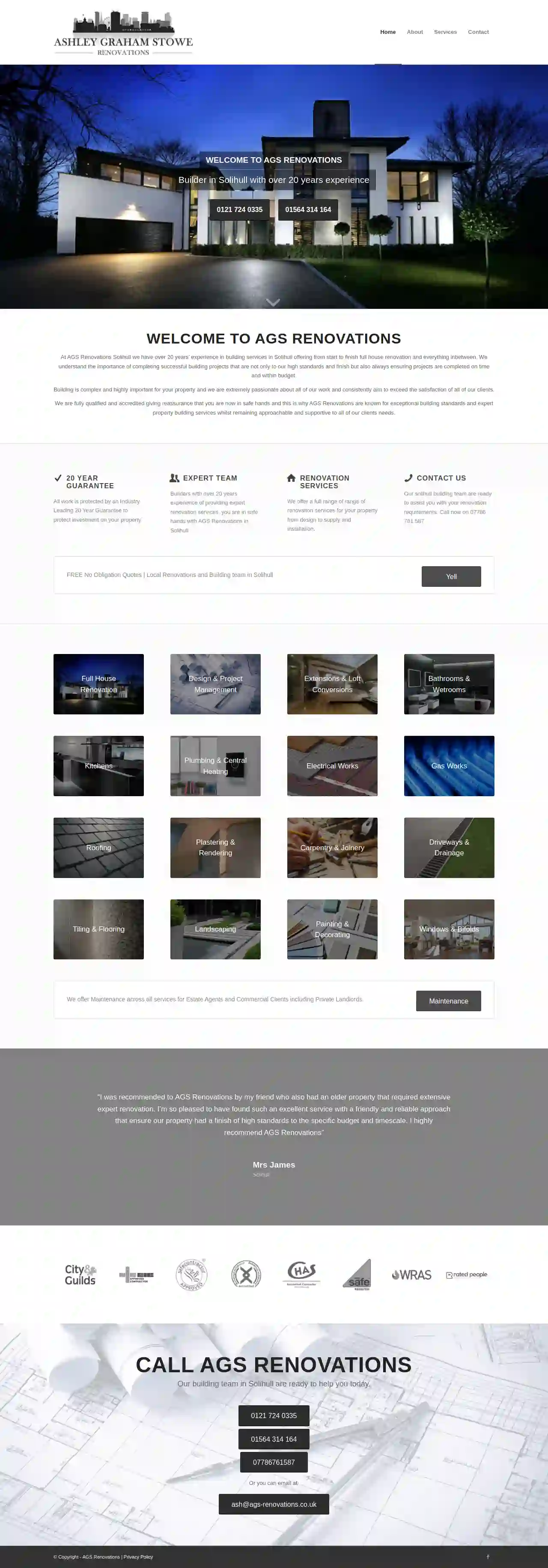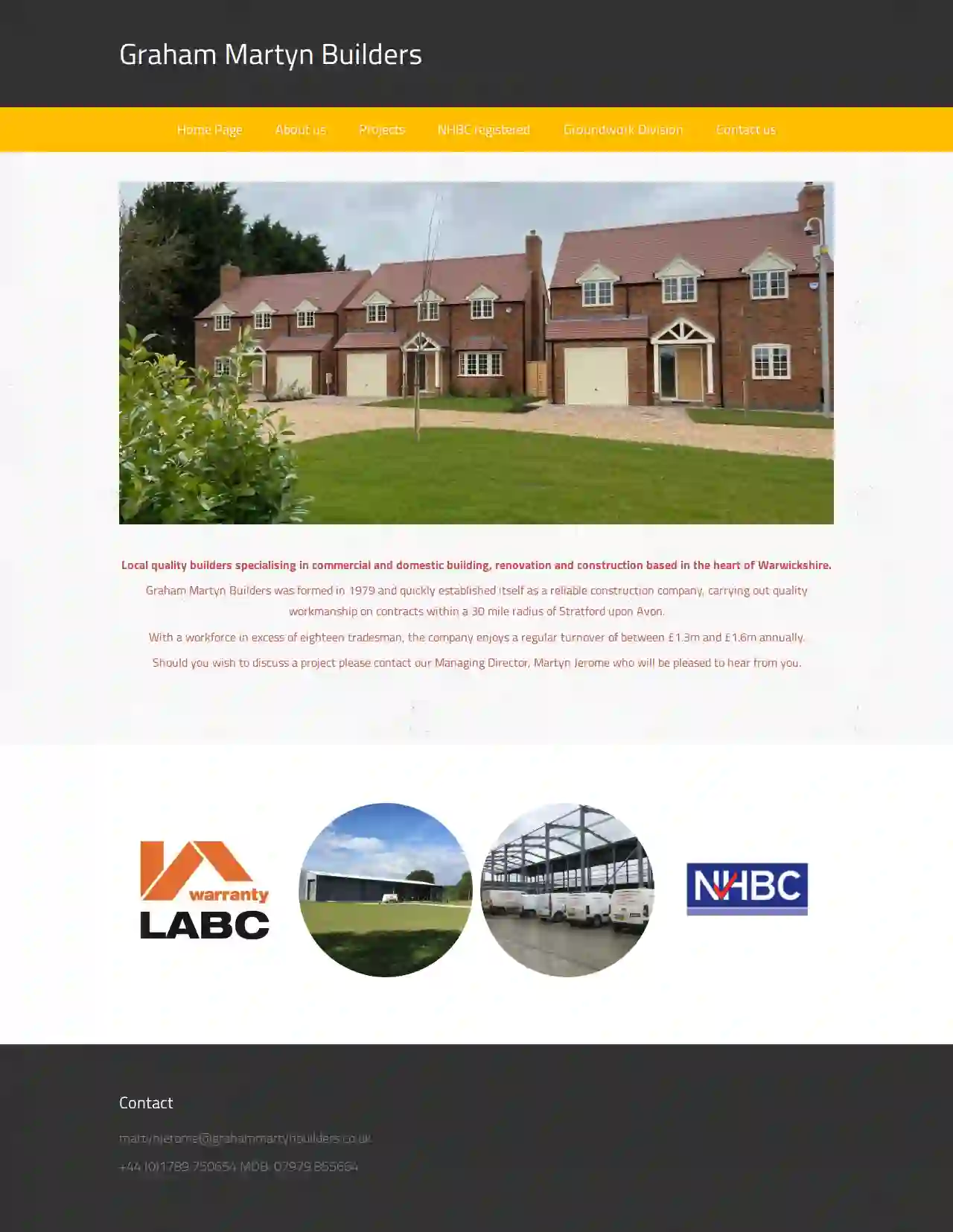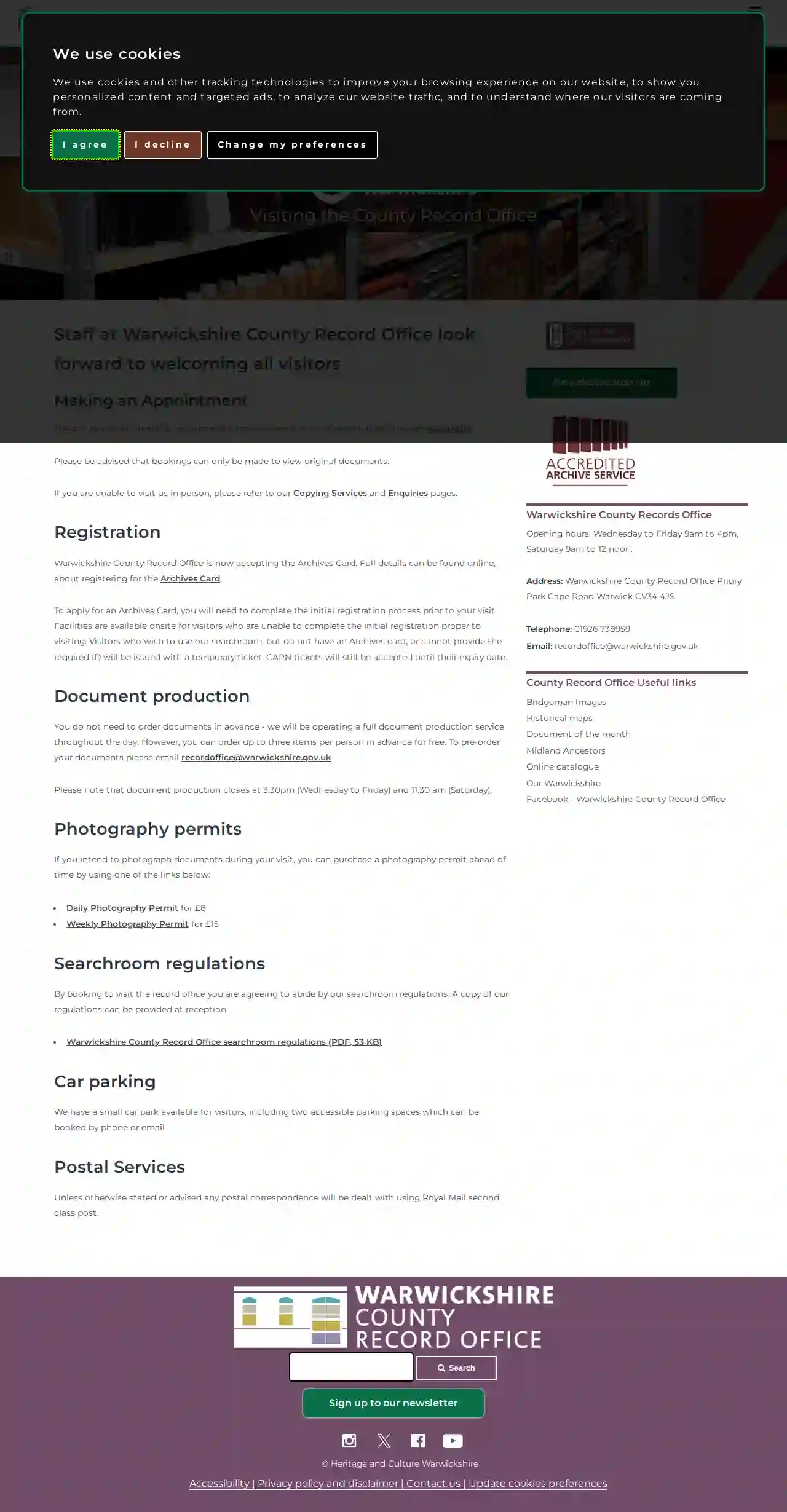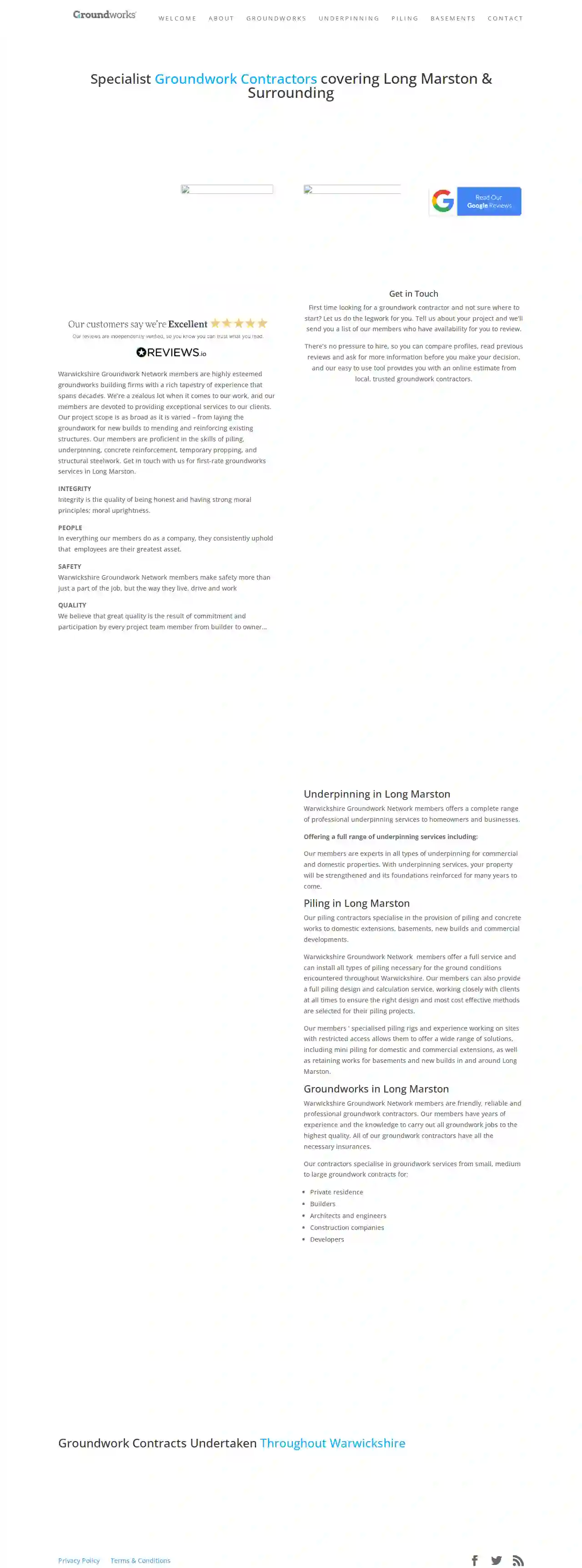Demolition Contractors Royal Leamington Spa
Find Demolition Contractors Near Me in Royal Leamington Spa
Get multiple Demolition Companies quotes for your project today! Compare profiles, reviews, accreditations, portfolio, etc... and choose the best deal.

Exac-One Ltd
4.47 reviewsThe Mount Buildings, Tunnel Hill, The Mount BuildingsTunnel HillUpton on SevernWorcs, Upton on Severn, WR8 0QL, GBExac-One Ltd: Your One-Stop Shop for Excavator Attachments Exac-One Ltd is a leading supplier of high-quality excavator attachments for a wide range of applications. We offer a comprehensive selection of attachments, including augers, trenchers, timber splitters, breakers, mowers, mulchers, stump grinders, tree shears, and more. Our attachments are designed to meet the demanding needs of our customers, and we are committed to providing exceptional customer service and support. We understand that choosing the right excavator attachment can be a daunting task. That's why we offer expert advice and guidance to help you find the perfect solution for your specific needs. Our team of experienced professionals is dedicated to helping you make the right decision for your business. Our Commitment to Quality At Exac-One Ltd, we are committed to providing our customers with the highest quality excavator attachments available. We source our products from reputable manufacturers around the world, and we rigorously test all of our attachments to ensure they meet our strict quality standards. We are confident that our attachments will provide you with years of reliable service. We also offer a comprehensive warranty on all of our products, giving you peace of mind knowing that your investment is protected. Our Services In addition to our wide selection of excavator attachments, we also offer a range of services to help you get the most out of your equipment. These services include: Expert advice and guidance on choosing the right attachment for your needs On-site installation and commissioning Comprehensive maintenance and repair services Spare parts and accessories Contact Us Today If you are looking for high-quality excavator attachments and exceptional customer service, contact Exac-One Ltd today. We would be happy to answer any questions you may have and help you find the perfect solution for your needs.
- Services
- Why Us?
- Gallery
Get Quote
AGS Renovations
52 reviewsWarwick, GBWelcome to AGS Renovations At AGS Renovations Solihull we have over 20 years’ experience in building services in Solihull offering from start to finish full house renovation and everything inbetween. We understand the importance of completing successful building projects that are not only to our high standards and finish but also always ensuring projects are completed on time and within budget. Building is complex and highly important for your property and we are extremely passionate about all of our work and consistently aim to exceed the satisfaction of all of our clients. We are fully qualified and accredited giving reassurance that you are now in safe hands and this is why AGS Renovations are known for exceptional building standards and expert property building services whilst remaining approachable and supportive to all of our clients needs. 20 YEAR GUARANTEE All work is protected by an Industry Leading 20 Year Guarantee to protect investment on your property. EXPERT TEAM Builders with over 20 years experience of providing expert renovation services, you are in safe hands with AGS Renovations in Solihull RENOVATION SERVICES We offer a full range of range of renovation services for your property from design to supply and installation.
- Services
- Why Us?
- Testimonials
- Gallery
Get Quote
CM EXCAVATING INC
4.47 reviews219 Golf View Street, PO 224, 219 Golf View Street PO 224, Lambton Shores, N0M 2N0, GBWelcome to CM Excavating Inc. Southern Ontario’s excavation, SWM Ponds, Earthworks & Sewer & WaterMain job site experts. Our well-trained & highly experienced team strive to complete the projects on time. “Safety First” is our objective at every construction site we work. Learn more
- Services
- Why Us?
- Testimonials
- Gallery
Get Quote
Graham Martyn Builders
1The Oriel House, Church Lane, Welford on Avon, Stratford upon Avon, Warwickshire., CV37 8EL, GBAbout Graham Martyn Builders Graham Martyn Builders is a local, family-run business with a rich history spanning over 40 years. Established in 1979, we've built a solid reputation for delivering high-quality construction projects across Warwickshire and beyond. Our team of skilled tradespeople, boasting over 18 professionals, is dedicated to exceeding client expectations on every project. We specialize in both commercial and domestic building, renovation, and construction, handling projects of all sizes. From large-scale commercial developments to individual house builds, we've got the expertise and experience to bring your vision to life. Our commitment to quality is reflected in our consistent annual turnover of £1.3m to £1.6m, a testament to the trust and confidence our clients place in us. We're proud to be NHBC and LABC registered builders, offering 10-year warranties on all new homes, providing peace of mind for our clients. We understand that every project is unique, and we take the time to listen to your needs and goals. Our Managing Director, Martyn Jerome, is always happy to discuss your project in detail and provide expert advice.
- Services
- Why Us?
- Accreditations
- Our Team
- Gallery
Get Quote
SMH Homes Ltd.
1310 Wellingborough Road, Northampton, NN1 4EP, GBAbout Us SMH Civils Limited is a civil engineering and groundworks company with over 25 years of experience. We specialize in construction projects within the residential, commercial, industrial, and private sectors. We offer a complete package from the tender stage, including cost-saving options, and full project management from start to finish. Working Together We provide an end-to-end client experience that includes seamless communication, budgeting, staffing, and on-site organization. Why Choose Us? We work closely with our clients to complete projects on time and within budget. Contact us today and bring our project management skills and extensive construction experience to your next project.
- Services
- Why Us?
- Gallery
Get Quote
The Digger Man
517 reviewsSandringham Avenue, Stratford-Upon-Avon, CV37 0SW, GBWelcome to the No.1 Digger Man in Warwickshire Are you in need of reliable and efficient digger and driver hire services in the picturesque area of Stratford Upon Avon and its surrounding 20-mile radius? Look no further! We are your trusted partner for all your excavation and construction needs. At Digger and Driver Hire Stratford Upon Avon, we take pride in offering top-notch equipment and skilled operators to ensure your project is completed with precision and excellence. Whether you're a homeowner, contractor, or business owner, our services are tailored to meet your specific requirements. Why Choose Us? Local Expertise: We have a deep understanding of the Stratford Upon Avon area and its unique challenges. Our local knowledge ensures that we can navigate your project smoothly, taking into account any specific regulations or environmental considerations. Wide Range of Equipment: Our fleet of state-of-the-art diggers and construction equipment is well-maintained and ready for any task, big or small. We offer various sizes and types of machinery to suit your project's requirements. Experienced Operators: Our skilled and experienced operators are certified professionals who take safety and efficiency seriously. They will work closely with you to ensure your project is completed to your satisfaction. Competitive Pricing: We believe in offering quality services at competitive prices. Our transparent pricing structure ensures that you get the best value for your investment. Customer Satisfaction: Your satisfaction is our priority. We are committed to delivering results that exceed your expectations, on time and within budget. Our Services Digger & Driver Hire: Our skilled and licensed operators are available to operate our machinery or assist with your project. Groundwork Services: From site preparation to foundation digging, we offer comprehensive groundwork services. Site Clearance: We can efficiently clear your site of debris, vegetation, and more to prepare it for your project. Trenching and Utilities: Our equipment is ideal for trenching and laying utilities like water lines and cables. Get in Touch Ready to kickstart your project with our professional digger and driver hire services? Contact us today for a free consultation and quote. Our friendly team is here to answer all your questions and help you get started on your project. At Digger and Driver Hire Stratford Upon Avon, we are committed to turning your construction and excavation dreams into reality. Let's dig in and build together!
- Services
- Why Us?
- Our Team
- Gallery
Get Quote
Tyto Contracting
1Stockton House, Rugby Road, Stockton, Warwickshire, CV47 8LB, GBLeading The Way In Construction Excellence Tyto Contracting Limited: A Dynamic Principal Contractor Tyto Contracting Limited is a dynamic principal contractor operating across the UK, specialising in new build and refurbishment projects in the commercial sector and beyond. Renowned in the industry, we are committed to unlocking the potential of property and people, creating lasting value on behalf of the Wigley family. Our team is composed of highly experienced construction professionals, led by Director Charles Hicks, and they excel at reducing costs and maximising value at every stage. Our dedication to excellence and innovation ensures we deliver exceptional results on every project. Learn more A Triple-Standard Principal Contractor As a triple-standard principal contractor, Tyto Contracting Limited excels in comprehensive project delivery. Through effective collaboration, waste reduction and innovation, we offer a fresh approach to contracting that enhances value for our customers. Our collaborative efforts involve working closely with clients, partners and stakeholders to ensure that each project meets and exceeds expectations. By reducing waste, we not only cut costs but also contribute to more sustainable and environmentally friendly construction practices. Innovation drives us to adopt the latest technologies and methodologies, ensuring that our projects are at the forefront of industry advancements. Our strong reputation for delivering high-quality outcomes and a positive customer experience has consistently earned us awards and recognition. This reputation is built on our ability to deliver projects on time, within budget and to the highest standards of quality and safety. Each project is a testament to our unwavering commitment to excellence, from initial planning through to delivery. Capability Document Committed To Collaboration & Innovation Tyto Contracting Limited is a collaborative, innovative, hardworking, entrepreneurial, professional and reliable business. We create value for our business, people, partners, customers, and community. We invest in our skilled team, offering structured and supported career paths and new opportunities for graduates and experienced professionals. Training and development are core to the Tyto ethos. We believe in nurturing our staff and supporting them throughout their careers. Headquartered at Stockton House, a 19th-century manor house in Warwickshire, Tyto provides a serene environment for our team. Our facilities foster seamless collaboration, which is vital to our success. Ensuring Safety & Compliance With a solid foundation in property, development and construction, Tyto Contracting Limited is highly experienced in compliance areas, including health and safety, and environmental matters. We are committed to meeting and exceeding legal and industry standards. We ensure safe working conditions for all employees and anyone impacted by our activities by actively managing and mitigating foreseeable hazards. Continuous monitoring, re-evaluation and training are integral to our ethos. Our ISO 45001:2018 certification in health and safety underscores our commitment to protecting our workforce and partners while fostering ongoing improvement. Find Out More
- Services
- Why Us?
- Accreditations
- Our Team
- Gallery
Get Quote
Warwickshire County Record Office
56 reviewsWarwickshire County Record Office, Priory Park, Warwickshire County Record Office Priory Park Cape Road Warwick, Warwick, CV34 4JS, GBWelcome to Warwickshire County Record Office The Warwickshire County Record Office is a treasure trove of historical documents, offering a fascinating glimpse into the past of Warwickshire. Our collection spans centuries, encompassing a wide range of materials, including: Parish registers and wills Manorial records and court rolls Maps and plans Business records and personal papers Photographs and films Whether you're a seasoned genealogist, a local historian, or simply curious about the past, we have something for everyone. Our dedicated staff are on hand to help you navigate our collection and uncover the stories it holds. Our Mission Our mission is to preserve and make accessible the historical records of Warwickshire for the benefit of present and future generations. We strive to provide a welcoming and informative environment for all visitors, fostering a love of history and promoting understanding of the county's rich heritage. Our Team Our team of experienced archivists and librarians are passionate about history and dedicated to providing excellent customer service. We are committed to making our collection accessible to all, regardless of experience or background.
- Services
- Why Us?
- Gallery
Get Quote
AJ Coldicott Ltd
1Warwick, GBSpecialist Groundwork Contractors covering Long Marston & Surrounding In partnership with homeowners, major contractors and national developers we deliver large scale, complex projects to challenging programmes. Warwickshire Groundwork Network members are highly esteemed groundworks building firms with a rich tapestry of experience that spans decades. We’re a zealous lot when it comes to our work, and our members are devoted to providing exceptional services to our clients. Our project scope is as broad as it is varied – from laying the groundwork for new builds to mending and reinforcing existing structures. Our members are proficient in the skills of piling, underpinning, concrete reinforcement, temporary propping, and structural steelwork. Get in touch with us for first-rate groundworks services in Long Marston. Our Values INTEGRITY Integrity is the quality of being honest and having strong moral principles; moral uprightness. PEOPLE In everything our members do as a company, they consistently uphold that employees are their greatest asset. SAFETY Warwickshire Groundwork Network members make safety more than just a part of the job, but the way they live, drive and work QUALITY We believe that great quality is the result of commitment and participation by every project team member from builder to owner…
- Services
- Why Us?
- Gallery
Get Quote
EarthMatters L.L.C.
56 reviews629 Manatawny Rd, Boyertown, 19512, GBEarth Matters LLC We are a family owned company located in Boyertown, PA. We provide quality customized care to our customers. We believe in taking care of our clients and providing proven results. We specialize in laser grading for sports fields and arenas. We work with the latest equipment to complete site work and excavation projects within projected timelines.
- Services
- Why Us?
- Gallery
Get Quote
Over 11,537+ Excavation Businesses registered
Our excavation experts operate in Royal Leamington Spa and surrounding areas!
ExcavationHQ has curated and vetted Top Excavation Contractors in Royal Leamington Spa. Find a reliable pro today.
Frequently Asked Questions About Demolition Contractors
- Dust Suppression: Use water spraying, misting systems, or other dust suppression techniques to control airborne particles.
- Noise Barriers: Erect temporary noise barriers around the demolition site to reduce noise transmission to nearby properties.
- Work Schedule: Schedule noisy demolition activities during permitted hours to minimize disturbance to neighbors.
- Communication: Keep neighbors informed about the demolition schedule and any potential disruptions.
- Implosion: Using explosives to collapse a structure inwards rapidly. Suitable for large buildings in open areas.
- Wrecking Ball: Swinging a large steel ball to impact and break down the structure. Effective for bringing down walls and other solid elements.
- High-Reach Demolition: Utilizing specialized excavators with extended arms and demolition attachments for dismantling tall structures piece by piece.
- Selective Demolition: Removing specific parts of a building while preserving other sections. Often used in renovation projects.
- Deconstruction: Carefully dismantling a building to salvage reusable materials, reducing waste and environmental impact.
- Feasibility Studies: Assessing the viability and challenges of a demolition project.
- Demolition Planning: Developing demolition plans, including method selection, sequencing, and safety procedures.
- Permitting Assistance: Navigating the demolition permitting process and ensuring compliance with regulations.
- Hazardous Material Surveys: Identifying and managing hazardous materials, such as asbestos and lead paint.
- Cost Estimating: Providing accurate cost estimates for demolition services.
- Project Management: Overseeing the demolition process and ensuring it proceeds as planned.
- 'Can I see proof of your licensing and insurance?' Verify their credentials and coverage.
- 'What experience do you have with projects like mine?' Ensure they have relevant expertise.
- 'Can you provide references from past clients?' Check their reputation and customer satisfaction.
- 'What are your safety protocols?' Prioritize contractors who emphasize safety.
- 'How will you handle hazardous materials?' Ensure they have proper procedures for asbestos or lead abatement.
- 'What is your timeline for completing the project?' Understand the project duration.
- 'How will you manage noise, dust, and debris?' Discuss mitigation measures for minimizing disruption.
- 'What are your payment terms?' Clarify payment schedules and any required deposits.
How can I minimize the dust and noise from demolition?
What are the different types of demolition?
What is the role of a demolition consultant?
What questions should I ask a demolition contractor before hiring them?
How can I minimize the dust and noise from demolition?
- Dust Suppression: Use water spraying, misting systems, or other dust suppression techniques to control airborne particles.
- Noise Barriers: Erect temporary noise barriers around the demolition site to reduce noise transmission to nearby properties.
- Work Schedule: Schedule noisy demolition activities during permitted hours to minimize disturbance to neighbors.
- Communication: Keep neighbors informed about the demolition schedule and any potential disruptions.
What are the different types of demolition?
- Implosion: Using explosives to collapse a structure inwards rapidly. Suitable for large buildings in open areas.
- Wrecking Ball: Swinging a large steel ball to impact and break down the structure. Effective for bringing down walls and other solid elements.
- High-Reach Demolition: Utilizing specialized excavators with extended arms and demolition attachments for dismantling tall structures piece by piece.
- Selective Demolition: Removing specific parts of a building while preserving other sections. Often used in renovation projects.
- Deconstruction: Carefully dismantling a building to salvage reusable materials, reducing waste and environmental impact.
What is the role of a demolition consultant?
- Feasibility Studies: Assessing the viability and challenges of a demolition project.
- Demolition Planning: Developing demolition plans, including method selection, sequencing, and safety procedures.
- Permitting Assistance: Navigating the demolition permitting process and ensuring compliance with regulations.
- Hazardous Material Surveys: Identifying and managing hazardous materials, such as asbestos and lead paint.
- Cost Estimating: Providing accurate cost estimates for demolition services.
- Project Management: Overseeing the demolition process and ensuring it proceeds as planned.
What questions should I ask a demolition contractor before hiring them?
- 'Can I see proof of your licensing and insurance?' Verify their credentials and coverage.
- 'What experience do you have with projects like mine?' Ensure they have relevant expertise.
- 'Can you provide references from past clients?' Check their reputation and customer satisfaction.
- 'What are your safety protocols?' Prioritize contractors who emphasize safety.
- 'How will you handle hazardous materials?' Ensure they have proper procedures for asbestos or lead abatement.
- 'What is your timeline for completing the project?' Understand the project duration.
- 'How will you manage noise, dust, and debris?' Discuss mitigation measures for minimizing disruption.
- 'What are your payment terms?' Clarify payment schedules and any required deposits.